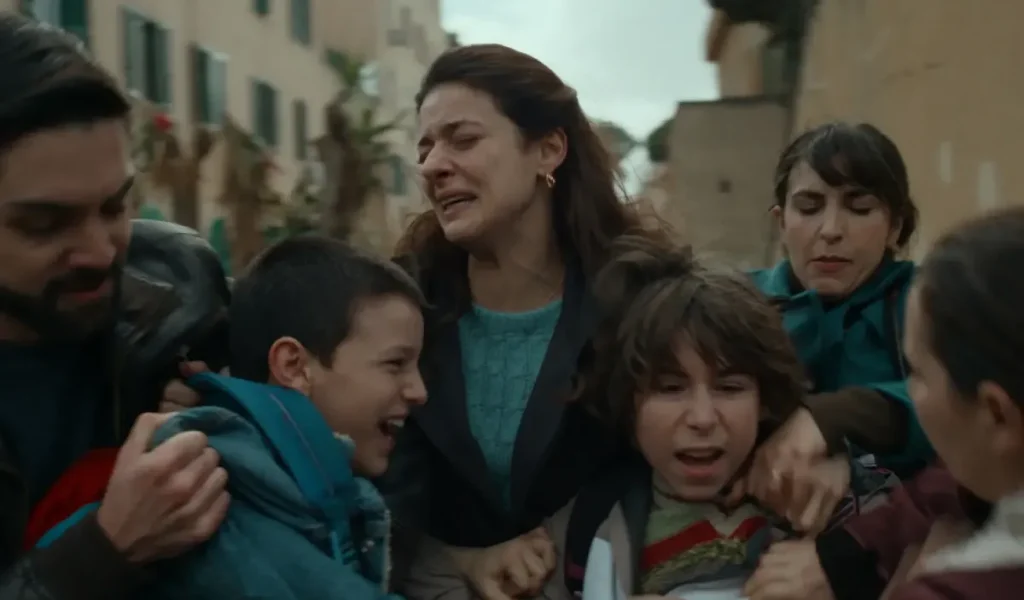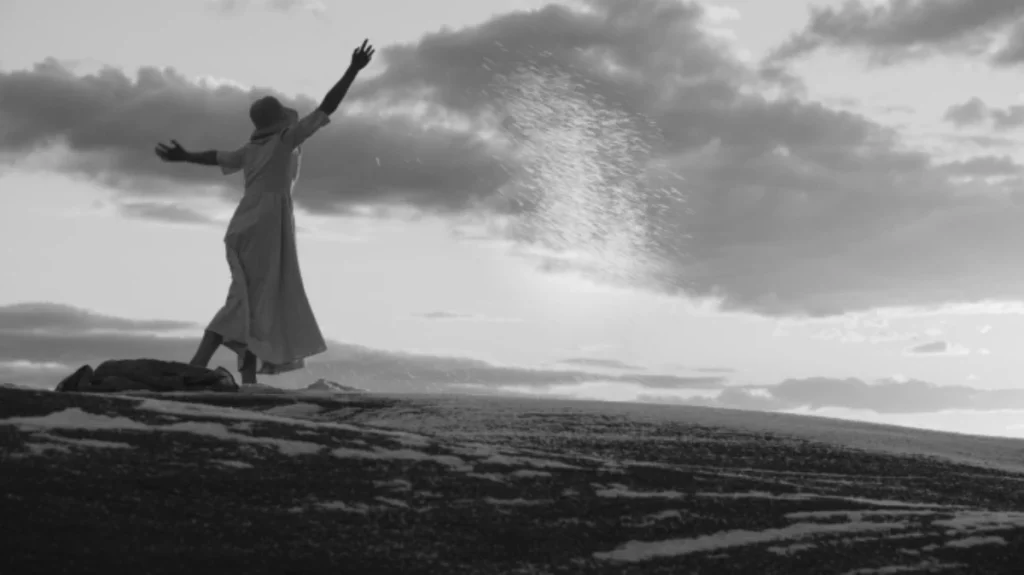Italy’s official Oscar submission for the 2026 Best International Feature Film, Familia, is a powerful and genre-bending drama directed by Francesco Costabile. The film delves deep into the themes of trauma, domestic violence, and the cycle of abuse within a toxic family structure—using horror-inspired visuals to intensify its emotional impact.
A Bold Take on Trauma and Masculinity
Inspired by Luigi Celeste’s memoir, Familia recounts the author’s turbulent youth as a far-right militant shaped by his father’s violent and criminal past. The story captures how inherited trauma and toxic masculinity destroy lives across generations.
Premiering in the Horizons sidebar at the Venice Film Festival, the film earned Francesco Gheghi the Best Actor award for his haunting portrayal of Luigi. His performance embodies both youthful fragility and the internalized rage of a boy caught in the shadow of an abusive father.
Actors Francesco Di Leva and Barbara Ronchi play Luigi’s troubled parents, adding depth and authenticity to the film’s emotional landscape. The production was spearheaded by Attilio de Razza and Nicola Picone for Tramp Limited, with support from Indigo Film, O’Groove, and Medusa Film, the movie’s Italian distributor. True Colours is managing international sales.
Blending Horror and Realism
In an interview with The Hollywood Reporter, director Francesco Costabile discussed his unique approach to storytelling. Known for his 2022 film Una Femmina: The Code of Silence, which explored domestic violence within a criminal organization, Costabile continues to shed light on the darker sides of human nature in Familia.
“Reality today is more horrific than fiction,” Costabile says. “I use horror elements not to exaggerate, but to reveal that the true horror lies in real life itself.”
By blending horror aesthetics with realistic storytelling, the director forces audiences to confront uncomfortable truths about abuse, gender dynamics, and emotional trauma.
A Reflection on Toxic Masculinity
Unlike traditional domestic violence dramas, Familia shifts its lens toward how toxic family environments affect both women and men. Costabile emphasizes that violence against women transcends cultural and social barriers, but Familia also reveals how such violence distorts the male psyche.
“We wanted to explore how these patterns affect the male universe as well,” Costabile explains. “This is a story that every family, in some way, can recognize.”
Casting That Brings Realism to Life
The casting process for Familia was meticulous. Costabile spent months searching for faces that could convey the raw emotions central to the story.
Francesco Gheghi, only 22 years old, impressed the director with his blend of youthful vulnerability and inner rage. Costabile compared him to a young Marcello Mastroianni, praising his ability to balance aggression with innocence.
To heighten the film’s authenticity, Costabile cast a mix of professional and non-professional actors. Many of the young men portraying members of the Neo-fascist group were discovered through street casting—particularly in boxing gyms.
The Powerful Father-Son Showdown
One of Familia’s most intense scenes—a dramatic confrontation between father and son—was emotionally exhausting for the cast and crew. Costabile describes it as a mirror moment, where both characters see the worst parts of themselves reflected in each other.
“It was a tragic and overwhelming scene,” he says. “Because I know the real Luigi Celeste and his family, I felt a deep responsibility to portray that truth authentically.”
The director also points to another harrowing scene in which children are taken away from their mother—a sequence designed to make viewers deeply uncomfortable.
“Cinema should move your conscience as much as your emotions,” Costabile says. “That’s the kind of cinema I want to make—social, political, and human.”
A Dream Realized: Italy’s Oscar Entry
When Familia was officially announced as Italy’s Oscar contender, Costabile was overwhelmed.
“I was speechless,” he recalls. “When the Commission called, I thought it was a joke. But it’s a dream come true.”
The director is eager to see how American audiences respond to the film’s exploration of abuse, masculinity, and moral conflict.
What’s Next for Francesco Costabile
Costabile is already developing his next project—one that he hints will complete a trilogy on violence, connecting thematic threads from Una Femmina and Familia. While details remain under wraps, he promises that the upcoming film will once again challenge audiences to confront uncomfortable realities through emotionally charged storytelling.
Final Thoughts
With Familia, Francesco Costabile has crafted more than just an Italian drama—it’s a raw exploration of human pain, guilt, and resilience. By weaving horror elements into the family narrative, he exposes the hidden terror within domestic spaces and the generational cycle of violence that continues to haunt society.
As Italy’s Oscar submission for 2026, Familia stands as a striking example of how Italian cinema continues to evolve—embracing bold storytelling, emotional depth, and a fearless approach to truth.
Also Read: Disney+ Subscribers Surge by 3.8 Million as Streaming Profits Climb in Q4 2025



